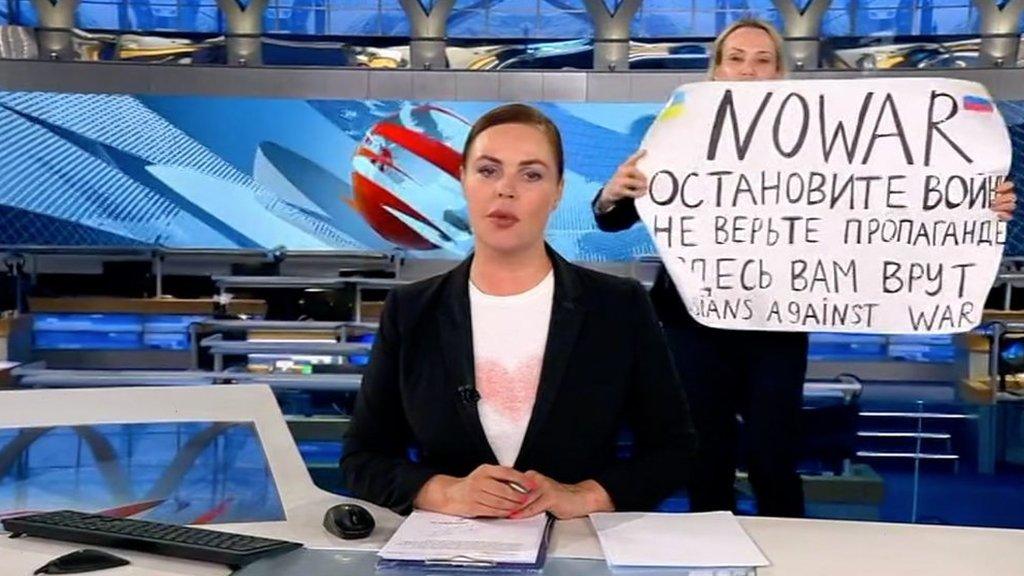Marina Ovsyannikova: Anti-war Russian journalist fined for 'discrediting army'
- Published
Watch: Anti-war demonstrator disrupts Russia's state TV news
Former Russian TV journalist Marina Ovsyannikova has been fined for "discrediting" Russia's army.
She made international headlines in March when she held a protest against the Ukraine war during a live broadcast on state-controlled Channel 1 news.
On Thursday, a Moscow court fined Ms Ovsyannikova 50,000 roubles ($800) over comments she made about the war.
"What's going on here is absurd," she told the court. "War is horror, blood and shame."
Russia passed a law against "discrediting" its armed forces in early March, shortly after it invaded Ukraine.
Ms Ovsyannikova was accused of breaking the law when she wrote on social media that those responsible for the war would find themselves in the dock before an international tribunal.
She told the court the trial was designed to "intimidate" her and others who oppose Russia's invasion of Ukraine.
But she told journalists outside the hearing: "They haven't managed to intimidate me. I will keep coming out against the war as I have before."
"The evidence confirms Ovsyannikova's guilt," Reuters news agency quotes the judge as saying in their ruling. "There is no reason to doubt its authenticity."
Ms Ovsyannikova said she would appeal the fine.
Her landmark protest in March saw the journalist walk onto the set of one of Russia's biggest evening news programmes holding a sign which read: "No war, stop the war, don't believe the propaganda, they are lying to you here."
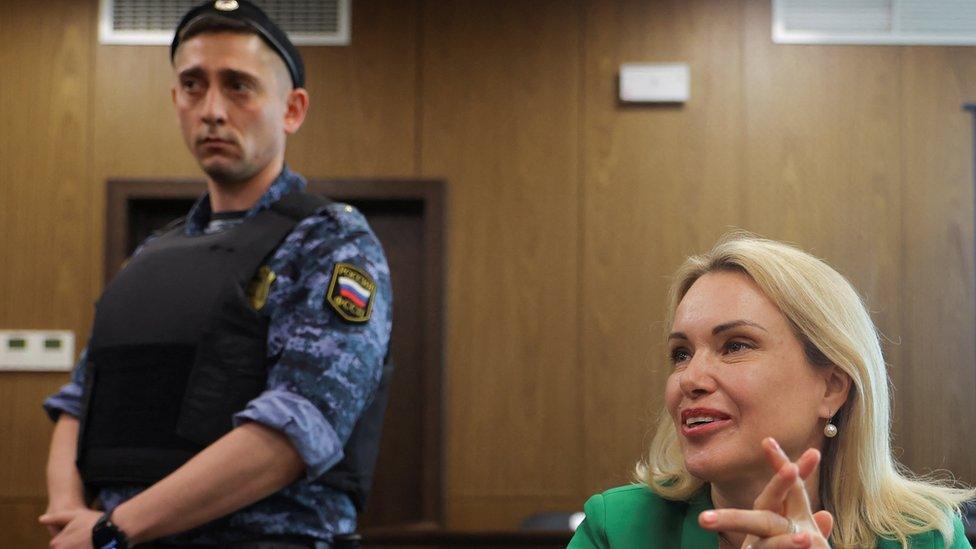
Ms Ovsyannikova refused to retract her remarks, calling the trial "absurd"
She was fired from her job and fined 30,000 roubles ($480; £400) following what she said was 14 hours of questioning.
Ms Ovsyannikova is due in court again next month in a different case on the same charges, relating to her social media posts. Repeated offences could in theory result in criminal prosecution, but her lawyer told the BBC this was not certain.
Since the war in Ukraine began, Russia has insisted it be referred to as a "special military operation" and has clamped down on protests and criticism of the war or the armed forces.
Such restrictions and the impact of international sanctions have led to a string of resignations in Russian media, both at home and among foreign journalists working for Russian news outlets in the West.
Western journalists, too, have been banned from entering Russia.
Related topics
- Published16 March 2022
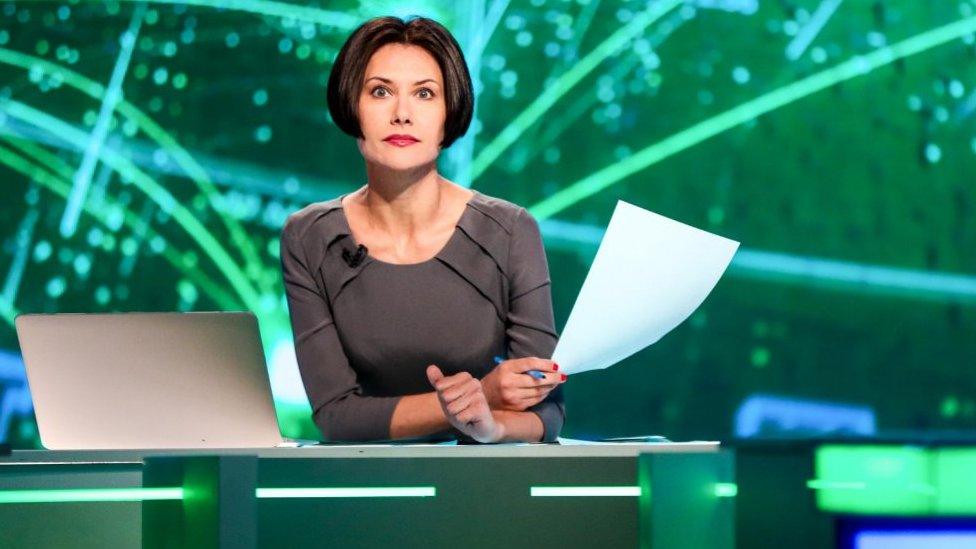
- Published15 March 2022
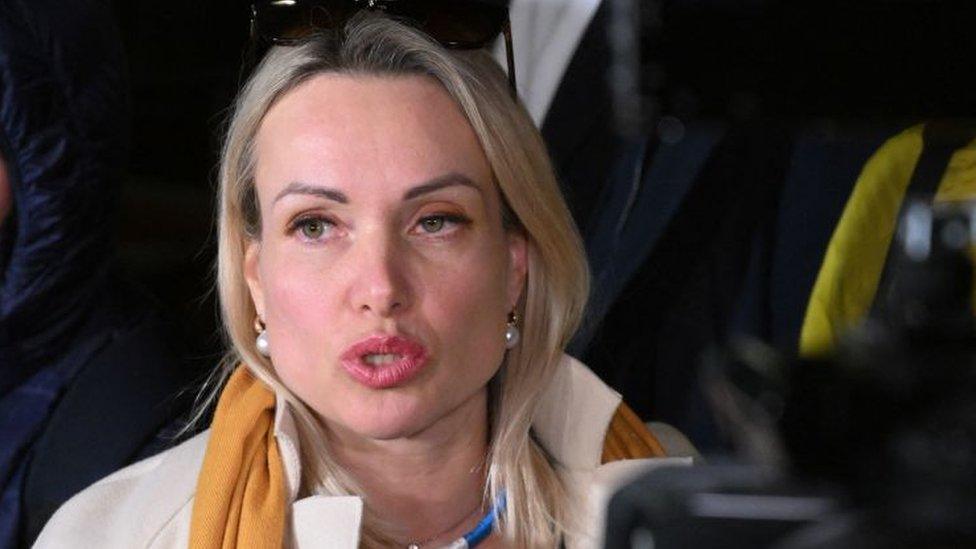
- Published8 July 2022
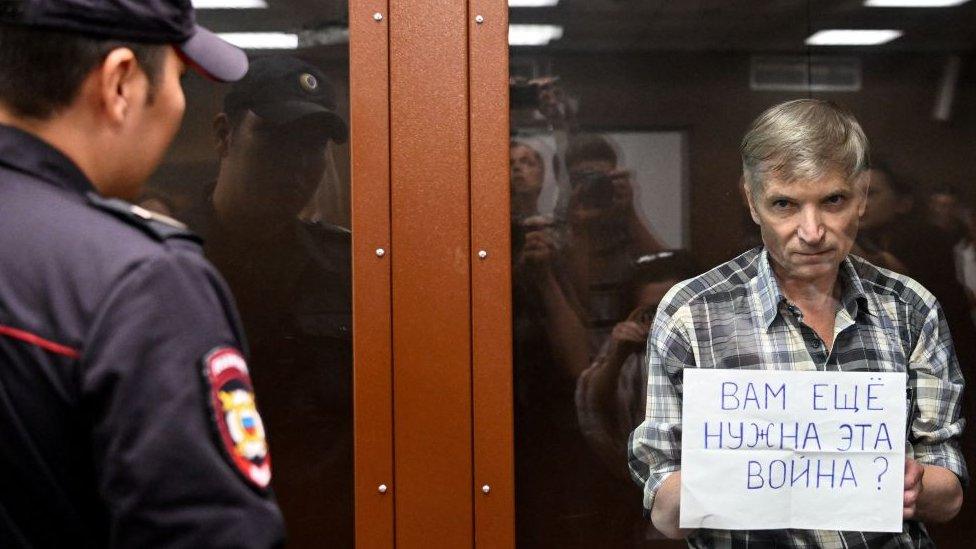
- Published7 March 2019
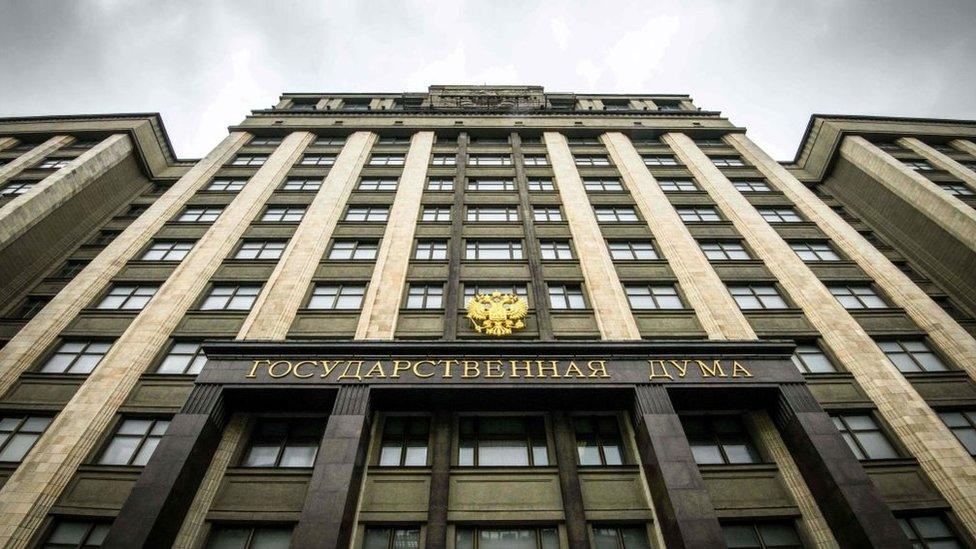
- Published14 March 2022
